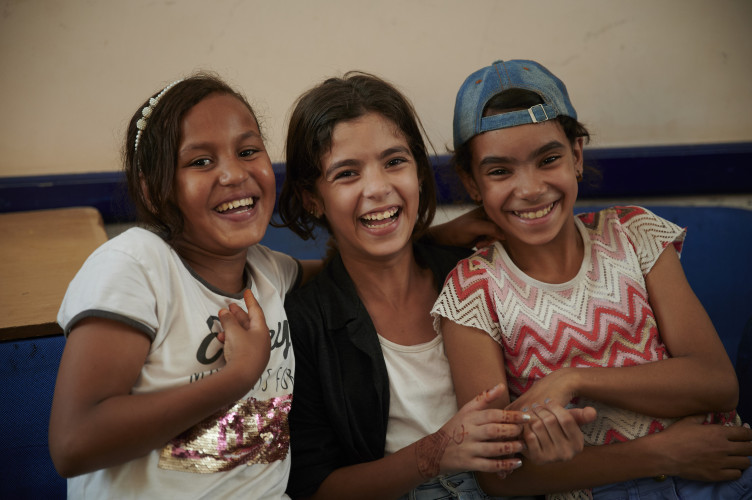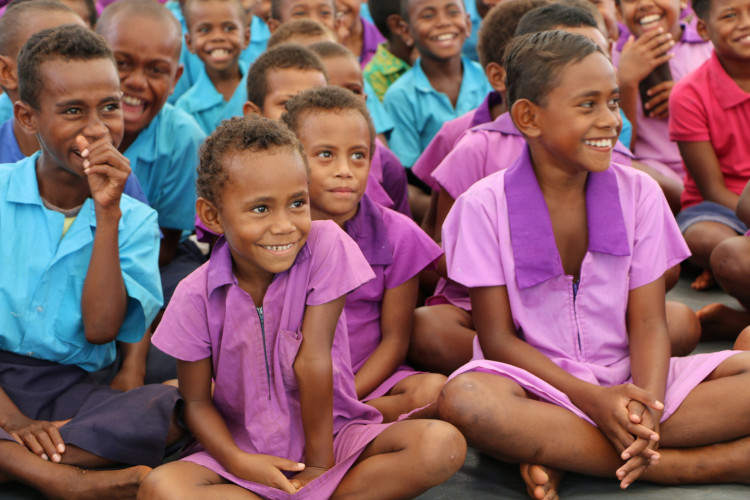Global Alliance for Disaster Risk Reduction and Resilience in the Education Sector
Global Alliance for Disaster Risk Reduction and Resilience in the Education Sector
The Global Alliance for Disaster Risk Reduction and Resilience in the Education Sector (GADRRRES) is an alliance of organisations which believe that every child has the right to learn in a safe environment. We work together to make this a reality.
GADRRRES members advocate for and implement comprehensive school safety approaches across the world. Its members and regional affiliates are guided by the Comprehensive School Safety Framework (CSSF 2022-2023), which takes an all-hazards, all-risks approach to protecting education and learners.
GADRRRES members and partners comprises UN agencies, international non-governmental agencies, humanitarian and development organisations and networks, youth organisations, donors/multilateral funds, and private sector organisations. We advocate for and support child rights, resilience, and sustainability in the education sector through a comprehensive approach to school safety.
Our Vision
GADRRRES’ vision is to ensure that education sector duty-bearers and their cross-sectoral partners have the evidence, data, and guidance and technical support to be able:
- To protect learners and education workers from death, injury, violence, and harm in schools
- To safeguard education sector investments To safeguard education sector investments
- To plan for education and protection continuity, and limit disruptions to learning in the face of shocks, stresses, hazards, and threats of all kinds
- To safeguard education sector investments
- To strengthen a culture of risk reduction and resilience through education
- To strengthen education system resilience through participatory, risk-informed planning, and capacity-development
Our work is guided by the Comprehensive School Safety Framework 2022-2030, which was developed by GADRRRES members. This includes general members, partners, and regional affiliates.
What do we mean by an ‘all-hazards approach’ to Comprehensive School Safety?
An ‘all hazards approach’ means supporting resilience and safety from all hazards and all risks facing children and their education. These include natural and technological threats, climate change, epidemics and pandemics (such as COVID-19), violence, conflict, and everyday threats, as well as their compounding effects.

How do we achieve this?
Our grounding is the ‘socio-ecological model’ which stresses linkages between child, family, school, community and the larger society and times we live in. When it comes to work at society levels, we encourage a 'collective impact' approach for achieving impact-at-scale. This means our work is guided by a common agenda for change, shared measurement for data and results, mutually reinforcing activities, open and continuous communication, and backbone coordinating organisation/s.
Our collective impact causes a ripple effect across all layers of our community, always with children’s rights at the heart of our work.
The diagram below shows how the layers of community contribute to collective impact. The layers from inside to outside include children, households and families, schools and teachers, communities, society and time and culture. Collective impact includes a common agenda for change, shared measurement for data and results, mutually reinforcing activities, open and continuous communication and a 'backbone' coordinating organisation/s.

The infographic below depicts Evidence-Based Practice Roadmap. The Pre-requisites include Organizational culture and climate support collaboration for impact at scale. This collaboration leads to Stakeholder identification & engagement and Common Agenda & Backbone Support. The Heart of Evidence Based Practice includes Shared tools & resources lead to Capacity-building through Evidence-based Practice, Practice-based evidence and Practice & policy implementation. Finally, the Follow-up includes Dissemination of findings, guidance and tools and Planning for next steps for practice & research.

Our approach is aligned to





